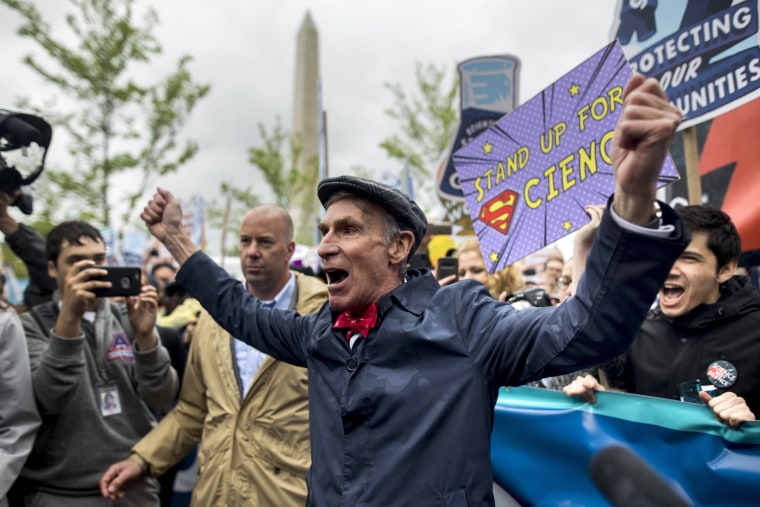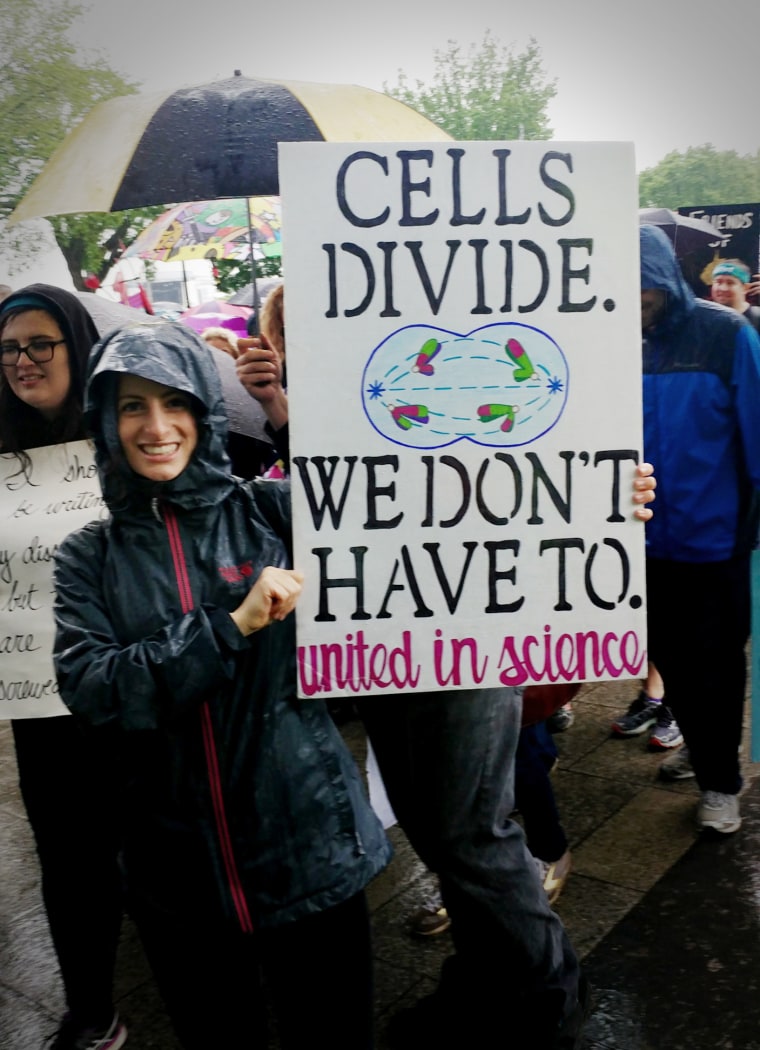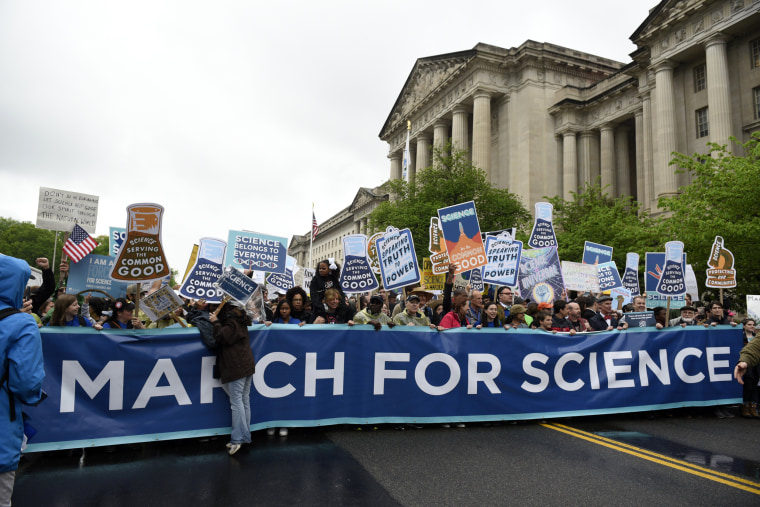By now it's become a familiar sight: A sea of handmade signs flood the streets, drums pound to the rhythm of footsteps as thousands of demonstrators chant rallying cries. Speakers take the stage and deliver impassioned speeches demanding equal rights for women, climate action — tax returns.
The imagery is quickly becoming iconic, but have weekend after weekend of protests really made a difference?

A Pew Research survey published Thursday found that roughly half of Americans (48 percent) said they supported the goals of April's March for Science, for instance. But the country is sharply divided along party lines as to whether the demonstration would actually help the cause.
More than half of Democrats and liberal-leaning voters surveyed (61 percent) said they believed the march would “increase public support of science.” But nearly the exact same number of Republicans and conservative-leaning participants surveyed (60 percent) said the demonstration would make no difference.
“These protests are reinforcing the current political cleavages in the country rather than breaking them down and trying to change the system,” said Michael Heaney, a political science professor at the University of Michigan.
And while organizers might market their cause as transcending party lines, Heaney said his research shows the demonstrators who turn out are rigidly partisan.
Less than 4 percent of participants Heaney surveyed at Inauguration Day demonstrations, the Women's March, the March for Science identified as Republican or "Independent who leans Republican."
Related: Anti-Trump Sentiment Drives Weekend Protest Habits
And a mere 10 percent of demonstrators at the March for Life identified as Democrat or "Independent who leans Democrat."
Heaney said the success of the demonstrations might briefly shift the tide in favor of Democrats during the 2018 midterms, but partisanship is preventing the demonstrations from becoming viable social movements.

“Civil rights as an issue polarized the country, as did the Vietnam War,” he said. “But there were Democrats who were for and against Civil Rights, and Republicans who were for and against Vietnam.”
“In order for these new social movements to have an effect, they have to find a way to cut across these boundaries.”
Dana Fisher agrees. A sociologist who also specializes in protest movements, Fisher told the Washington Post that she feels "the resistance" is still going strong, but that organizers need to find a way to channel that energy into action.
"Are they really civically engaged, are they going to do something before the midterm election, or are they going to go back to watch TV?” she said. "The data we have collected so far suggest they are not going back to watching TV."
Caroline Weinberg, one of three co-founders of April’s March for Science, said she still feels emboldened after the success of the march.
“Having hundreds of thousands of scientists and science supporters join together at 600 events around the world was a remarkable moment and sent a strong message that there are untapped groups of people who are just waiting to be mobilized,” she said.
She added that she and her fellow science activists are committed to building support across party lines.
“We truly believe that the need for science to inform policy is a nonpartisan issue," Weinberg said. "That principle will continue to lie at the crux of what we do moving forward.”
